When it comes to managing wealth and investments, traditional asset classes like stocks, bonds, and cash have long been the staples of a well-rounded portfolio. While these assets provide a foundation for financial stability, the modern investor’s landscape demands a broader perspective. Diversifying into alternative asset classes helps spread risk and opens the door to potentially higher returns and access to markets less correlated with the global financial system.
Exploring Alternative Asset Classes
Investors seeking to diversify their portfolios are increasingly drawn to alternative asset classes such as real estate, private equity, and digital assets, each with distinct benefits and challenges. At Virtue Asset Management, one of the leading wealth management firms in Chicago, we tailor investment strategies to your unique financial goals, helping you capitalize on these opportunities effectively and prudently.
Overview of Alternative Asset Classes
- Real Estate: One of the most recognized alternative investments, real estate encompasses residential, commercial, and industrial properties, along with Real Estate Investment Trusts (REITs). Real estate is prized for its potential rental yield and appreciation in value, offering a tangible asset that can provide a hedge against inflation.
- Private Equity: Unlike public stocks, private equity involves investing in companies not listed on stock exchanges. Private equity can yield substantial returns, albeit with higher risk and longer investment horizons.
- Hedge Funds: These pooled investment vehicles employ different strategies to earn active returns for their investors. Strategies such as long/short equities, market neutral, and global macro can provide returns uncorrelated with traditional markets, although they often require higher minimum investments and involve more complex risk factors.
- Commodities: Investing in commodities like precious metals, energy, and agricultural products can protect against inflation and diversify risks associated with financial markets. Commodities’ value often moves inversely to stocks and bonds, providing a useful balance in times of market stress.
- Collectibles: Art, wine, antiques, and rare coins represent a niche market that includes tangible assets and can also appreciate based on rarity and demand. While potentially lucrative, collectibles require deep market knowledge to avoid overvaluation risks.
- Cryptocurrency and Digital Assets: The newest frontier in alternative investing, digital assets like Bitcoin, Ethereum, and various non-fungible tokens (NFTs), offer high-risk but potentially high-reward opportunities. Their market value can be highly volatile, and regulatory landscapes are still developing.
Strategies for Incorporating Alternative Assets into a Portfolio
To integrate alternative assets effectively, investors should first assess their financial goals and risk tolerance to guide the allocation of investments across different asset classes. Typically, alternative investments should complement, not dominate, a portfolio. Experts often recommend allocating a portion of the portfolio—perhaps 10-20%—to alternative assets, depending on the individual’s risk tolerance and investment timeline.
Timing and market conditions also play critical roles. For instance, entering real estate during a market downturn might offer lower prices and higher potential upside. Similarly, diversifying into commodities should consider cyclicality and current economic indicators.
Tax considerations are also crucial as some alternative investments, like real estate and hedge funds, can have complex tax implications. Consulting with a tax advisor to understand and navigate these implications is essential. As one of the leading independent wealth management firms, Virtue Asset Management provides expert guidance in navigating these complex terrains, ensuring your portfolio is diversified and aligned with your long-term financial goals.

Benefits of Diversification Through Alternative Assets
Here are the key benefits of diversification through alternative assets:
- Risk Reduction: By investing in assets that do not correlate with the stock market, you can reduce your portfolio’s volatility and mitigate potential losses during market downturns.
- Enhanced Returns: Many alternative assets have the potential for high returns, especially in niche markets or in private ventures not accessible through public markets.
- Inflation Protection: Assets like real estate and commodities can often act as a hedge against inflation, preserving the purchasing power of your capital.
- Access to Unique Opportunities: Alternative investments can open doors to emerging technologies and markets, such as green energy or blockchain innovations, that are not typically available through traditional investment vehicles.
FAQ: What are other effective strategies for diversifying my investment portfolio?
Effective diversification strategies for enhancing your investment portfolio include investing in international markets to exploit different economic cycles and mitigate regional risks. Additionally, allocating investments across various sectors and merging different investment styles such as growth, value, and index investing can balance your portfolio against market volatility. Using a mix of mutual funds, ETFs, and private funds offers varied risk and exposure levels. Regular rebalancing is also crucial; adjusting your portfolio to realign with your target asset allocation ensures it remains well-suited to your risk tolerance and financial goals.
Diversify with Expert Advice from Virtue Asset Management
As one of the leading wealth management firms in Chicago, Virtue Asset Management is dedicated to serving high-net-worth individuals, affluent families, and business owners with personalized and sophisticated wealth management strategies. Our services include financial planning, investment management, estate planning, tax optimization, and risk management. Our experienced team works closely with each client to tailor solutions to your unique financial goals, risk tolerance, and future aspirations. By using our expertise in financial markets and planning, we ensure that every aspect of your financial life is integrated into a cohesive strategy, helping you achieve your financial objectives and secure a prosperous future. Contact us to discover how we can guide you toward financial success.
